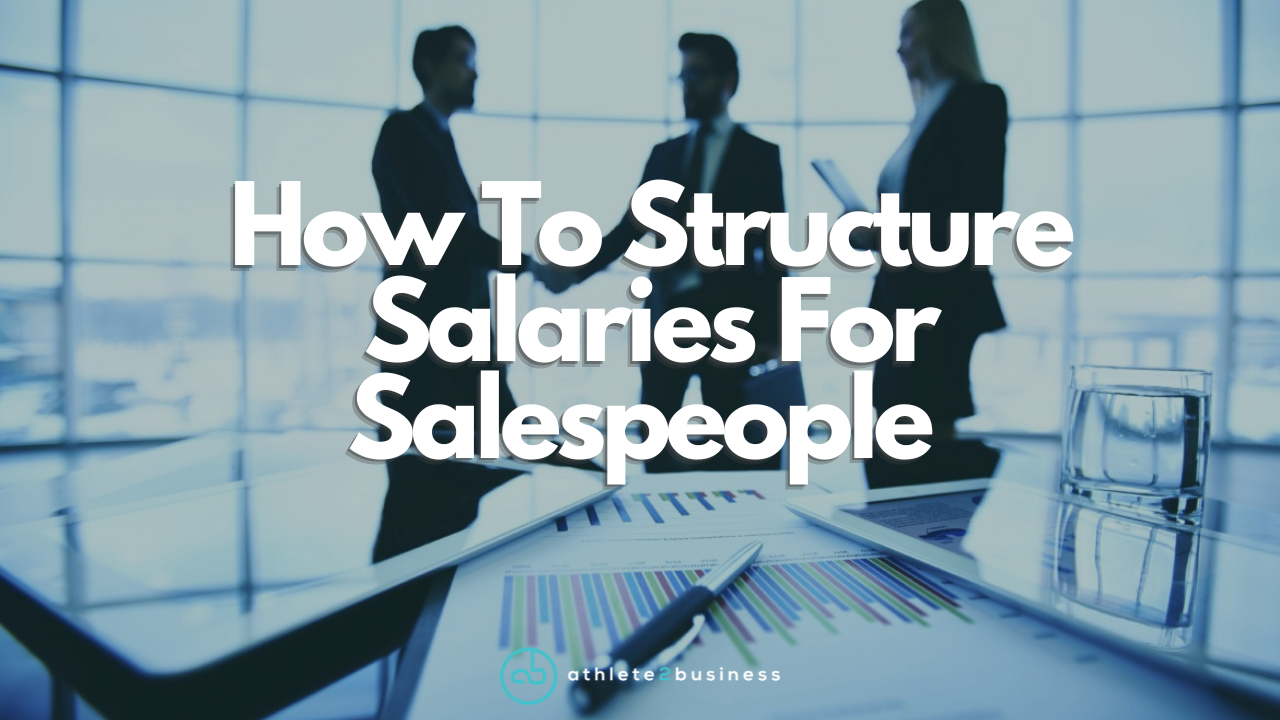By Alex Opacic
•
March 9, 2025
How to Structure a Salesperson's Remuneration Package: A No-Nonsense Guide How do you pay your sales team? What’s the right balance between base salary and commission? What truly motivates high-performing salespeople? I’ve spent seven years headhunting elite sales talent (2018–2025) across industries and seniority levels. This guide breaks down what actually works when structuring a competitive remuneration package that attracts and retains top performers. Base Salary vs. Commission: What Salespeople Actually Want The old-school belief that salespeople are purely motivated by commission is outdated. Security, stability, and guaranteed income (base salary) have become bigger motivators than potential earnings. In major cities, the cost of living is high, and sales professionals—especially experienced ones—aren't taking risks on low base salaries with “unlimited commission potential.” Here’s what top performers expect: Senior-Level Sales Professionals (10+ years experience): $200K+ base Mid-Level Sales Professionals: $150K–$180K+ base Junior-Level Sales Professionals: $90K–$100K+ base ⚠️ The Risk Zone: $110K–$140K for Mid-Level Salespeople This range can be problematic. It’s too high for junior talent but often too low to attract experienced mid-level professionals. If you’re hiring at this level, your commission structure needs to be bulletproof —more on that shortly. Commission Structure: The 60/40 Rule and the Flight Risk Factor Typically, top sales performers expect a 60/40 split (60% base, 40% commission). But here’s the key: ✅ Commission is secondary to base salary. With the right negotiation and rapport, high performers won’t be as focused on commission if the base is solid. ✅ Only ~20% of the market is truly commission-driven. These salespeople are entrepreneurial by nature, meaning they’re a flight risk —likely to jump ship when things get tough or leave to start their own business. If your team is built on commission-heavy hires, expect high turnover and a weak employer reputation. Sales is no longer a “sink or swim” profession. It’s a legitimate career, just like law, engineering, or accounting, and sales professionals expect to be paid accordingly. High cost of living is creating pressure, stress and anxiety at alarming levels. Secure base salary means safety, comfort and piece of mind which is an optimal performance mindset - something career salespeople will fight for, run through brick walls to ensure they keep. Safety motivates people more than potential earnings! (80% belong in this bracket!) 20% are able to be comfortable with being uncomfortable, they live in the risk zone - these are entrepreneurial salespeople and are a flight-risk as employees. Finding and Paying A-Players: What Works (And What Doesn’t) Now, let’s get granular on hiring high-performing salespeople at different salary levels. Scenario 1: You Want a High Performer Who Can Convert Quickly 🔹 Required: Someone with a strong network, high closing ability, and industry credibility. 🔹 Realistic Salary Expectation: $150K+ base, with an OTE (On-Target Earnings) of at least 40% more. A top sales pro who’s already earning well won’t move for the same money. If they have a loyal network that converts, they need a serious financial incentive, as wherever they are now, they should be converting that network into cash. The biggest factor in them moving that network from current company to yours, will be a base salary increase of at least $20-30k. 💡 Hiring Tip: If budget is tight, consider this strategy: Find a strong mid-level salesperson earning $120K base. Offer $150K+ base but delay commissions for 12+ months (performance-dependent). That extra $30K in guaranteed salary is a huge motivator for high performers. ✅ Key Hiring Test: Ensure their 90-day plan includes a clear, convincing strategy for converting their network. If they can’t articulate this, they don’t have a network worth leveraging. Scenario 2: You Need a Strong Salesperson But Can Only Offer $100K–$120K Base 🔹 Common Employer Ask: “We want someone with a network who can convert.” 🔹 Reality Check: At this salary level, that’s unlikely. Well, the network part is unlikely. Salespeople with strong networks who convert consistently earn $180K+ total comp. If someone at $100K–$120K claims they have a high-performing network, be sceptical—they’re likely just good at interviewing. 💡 Better Approach: Instead of chasing an instant network, hire for: Hunting ability (prospecting and new business development) Strong closing skills Some industry knowledge (but sales skills matter more than product knowledge) If you’re relying on a strong commission structure, make sure it’s proven. If fewer than 40% of your current sales team hits their commission targets, your “strong comms structure” is irrelevant to high performers. Scenario 3: Your Budget is $70K–$100K Base 🔹 Best Strategy: Hire for coachability, resilience, and a strong prospecting mindset. 🔹 Key Focus Areas: Prospecting ability (more important than discovery or closing skills at this level). Willingness to learn and be coached. Competence in sales fundamentals. If your time to coach is zero , don’t hire at this level. Even at $100K base, some level of guidance will be needed. ✅ High performers at this level expect commission potential of at least 40% on top of base. If you’re offering lower OTE, expect lower engagement. ⚠️ The Danger Zone: $110K–$140K for Mid-Level Salespeople This salary range can be a tricky spot. It’s too high for junior talent and too low to consistently attract experienced mid-level professionals who are already performing at a high level. If you’re hiring in this range, your commission structure needs to be bulletproof —and you’ll need a compelling narrative around why someone would make the move. Most commonly, high performers in this range are those with 2–5 years of experience , earning around $100K base and consistently hitting or overachieving target . But here’s the catch: 👉 If they’re moving into a similar role, in the same industry, for the same base salary—you’ve got to ask: why are they really leaving? There are exceptions, of course, but be cautious. At this salary range, you’re better off focusing on: Prospecting and closing ability over network Talent from outside your industry who are hungry to break in Sales professionals who bring energy, resilience, and drive —even if they lack specific industry contacts 💡 If industry network and contacts are a must , be prepared to offer $20K–$30K more on base to make the role attractive enough for someone to walk away from a good situation. Bottom line: In this range, don’t get fooled by polished interviewers. Focus on real ability, upside, and hunger. There's a lot of career salespeople at this level who are mostly average, so be cautious. Final Takeaways: What Defines a High-Performing Salesperson? The best salespeople don’t just have “great energy” in interviews—they have: ✔️ Athlete Mindset : Resilience, competitiveness, discipline, and grit. ✔️ CHEC: Communication skills, Humble confidence, Emotional intelligence, and Commercial awareness. And finally— always have a clear, structured commission plan. Especially at the lower salary levels, transparency on commission can make or break a hire. Get the Pay Structure Right, and You’ll Attract the Best 🔹 Base salary is the #1 motivator for top salespeople today. 🔹 Commission matters, but only in a fair and achievable structure. 🔹 Misaligned pay expectations will either push top talent away—or leave you hiring the wrong people. If you get this right, you won’t just attract great salespeople—you’ll build a team of high performers who stay, thrive, and consistently close deals. Want to Hire Elite Sales Talent? I specialize in headhunting top-performing sales professionals with the athlete mindset + CHEC. If you’re looking to build a high-impact sales team, let’s connect .






